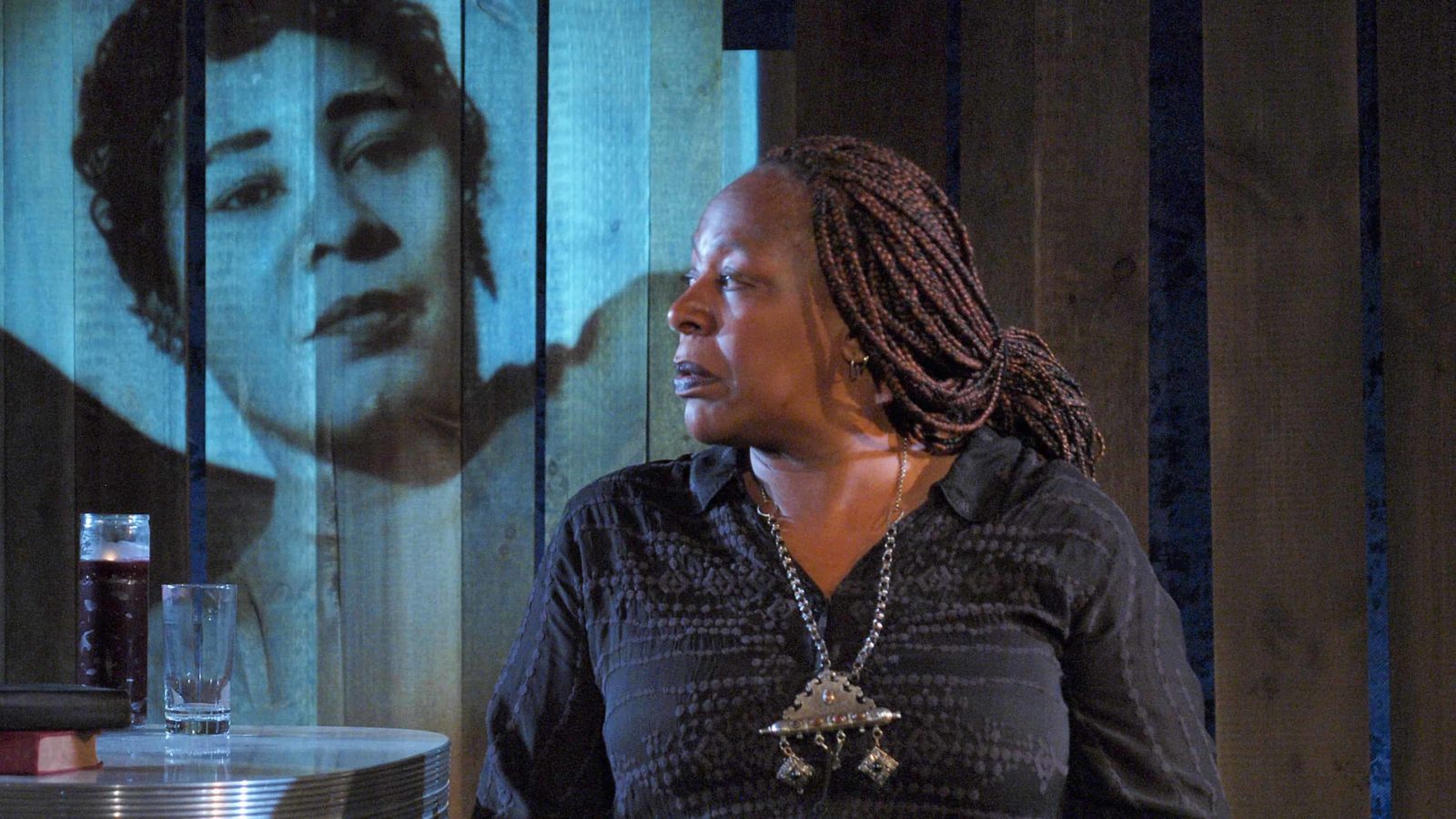It’s close July dusk in Paris. Dael Orlandersmith strikes a light and invites us on a walk. We are at the Père Lachaise Cemetery, and with a few words she brings us in with her. People are moving on the paths, looking for the names and resting places of Richard Wright, Colette, Balzac, Oscar Wilde.
This place remembers spirit and ability. People come here looking for minds that have shaped their own. Novelists and musicians and artists are resting here, with film-makers, physicians and chemists. They come from France, from Iran, the West Indies, the American South. And people come a long way to see them. Orlandersmith stands tall and quiet, trembling. She is finally here. The bare tone of her voice and the clarity of small interactions tell us how much this matters.
Orlandersmith is an Obie award-winning actor and playwright and a finalist for the Pulitzer prize, and she writes with the rhythm and direct vigor of a poet who has toured internationally with the Nuyorican Poets Café, now Real Live Poetry. She is leading a search into lost time in her new work, “Forever,” at the Weston Playhouse in Weston, Vt.
Beside Jim Morrison’s grave, while a young man stands listening through his headphones, she remembers the day she first heard the Doors and Ray Manzarek’s solo keyboard on the radio, as she cleaned the house after her mother’s weekly drunk … and the afternoon she bought the album with that song and carried it back through Harlem.
And she repeats two words that will beat through all the stories she tells tonight, as this walk in the cemetery leads her into the past: my mother.
She performs in the informal second stage on a set designed as simply as a Shaker barn — a table and two chairs and a backdrop of weathered boards standing upright at different heights, like a worn-out wall or the skyline of a distant city.
It’s a set as smooth as granite, and that bareness underscores the stories she tells. This is life and death. This is pain and endurance.
Tonight beautiful language will not hide brutal acts. It will make them clear. We sit for a few minutes, for an hour, while the stories and the pain build in force, and she looks steadily at us, reminding us that this play is autobiographical.
But she is here. She has brought herself to Paris. Against that simple set, she brings people and places vividly to life — a thin-walled bedroom at night, a friend the summer she was nine, broken glass in a city park and the young actors she met in the Village as a teenager.
And the books her mother taught her to read.
As she takes this walk to understand who her mother was and could have been, as she takes this walk to move through the past and make her own present, she holds these voices in the cemetery alive within her, and we hear her conviction.
I belong. I have a place. I have found people who have felt what I feel.
She has brought herself to Paris, and Paris is beautiful, but it is not easy.
Early on, as she comes into the cemetery, she is shaken, thinking visitors around her will wonder why she is there. She talks with a man who gives her directions to Richard Wright’s stone, and his quiet concern shakes her still more. She says, he saw me. And remembering that, I think of another voice she has come looking for. I can hear Edith Piaf, singing low.
Allez, venez, Milord!
Vous asseoir à ma table;
Il fait si froid, dehors.
Ici c’est confortable.
… Je vous connais, Milord —
vous ne m’avez jamais vue.
Je ne suis qu’une fille du port,
Qu’une ombre de la rue…
Well then come in, my lord,
and sit down at my table.
It’s bitter cold outside,
and here it’s comfortable …
and I know you, my lord —
you have never seen me.
I’m just a harbor girl,
a shadow of the street.
In the song a young woman has to comfort a powerful figure who pays no attention to her. You have never seen me.
The words might well reach a tall woman with a crown of braids who was once a five-year-old girl having to hold her mother when her mother was blind drunk.
And yet Piaf, the shadow of the street, sang to international audiences and was so loved that her memorial stopped traffic on the streets of Paris. A strong voice can move through time and place, and it can light a candle flame.
Photo at the top: Dael Orlandersmith performs her show, ‘Forever,’ at Weston Playhouse. Photo by Tim Fort, courtesy of Weston Playhouse.

